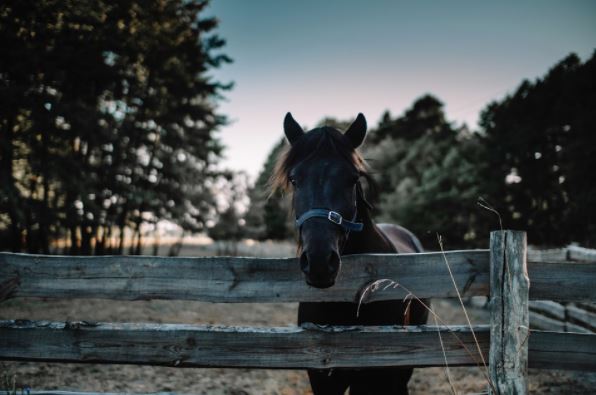Horses are beautiful creatures. They are majestic, powerful animals that capture the imagination of people all over the world. However, taking care of a horse is not easy and you must understand what to do in order to provide it with everything it might need. While each horse might require slightly different care, there are 6 general tips that will apply to nearly any horse.
1. Nutritional Diet And Water
Just like for any other animal, food and water are very important for a horse as well. However, the kind of feed you give your horse and the amount you give it might vary considerably depending on a number of factors. You should keep your horse’s dietary needs in mind at all times and do what is necessary to provide them with appropriate food, water, and even supplements where necessary. For starters, the recommended feed will vary depending on the season, as well as the horse’s age, health, weight, etc. While supplements are mostly something that is best discussed with a vet beforehand, muscle support for horses is practically always a good idea since the amino acids and certain minerals the supplement is made out of are the keys to maintaining cellular function. Additionally, you should always have an appropriate source of water for your horse to drink from. That means that the water should be clean so that there’s no risk of a bacterial infection, and that it should be on the colder side during the warmer months, and warm during the winter.
2. Grooming Your Horse
Caring for the coat of your horse is just as important as caring for any other part of its body. A healthy coat will be shiny, smooth to the touch, and not easily come off when you are brushing it. Additionally, a good grooming session will have your horse looking majestic in no time, which is always exciting for both humans and animals alike. With that in mind, you should brush your horse frequently using the proper tools (i.e. brushes, combs, etc.). Brushing is something that you should do once a day if possible, and every 3 days at a minimum (unless there’s some sort of emergency or illness). You will also want to make sure you clean your horse’s hooves on a regular basis. If the foot lacks proper support, it can lead to all sorts of problems including edema and arthritis (among other diseases).
3. Cleaning Their Stalls And Tack
Horses produce a lot of waste. While that waste is actually healthy for your land in many cases, it can be very problematic when your horse’s stall gets too dirty. With that in mind, you should make sure to clean out the stall on a regular basis (i.e. at least once or twice per day). You should also clean their tack on a regular basis – after every ride, in most cases, to ensure that it remains in good condition. Dirty tack is very difficult, if not impossible to work with, and can lead to saddle sores or various other problems for the animal.
4. Maintaining A Healthy Weight
A single horse can weigh anywhere between 900-2,000 pounds, depending on the breed. With that in mind, keeping your horse’s weight within normal levels is essential for its health. If you feed your horse too much or too little (relative to their activity level), it can cause problems with digestion and even lead to colic, laminitis (i.e. hoof inflammation), etc. It can also cause your horse to become lethargic or excessively energetic, which is never good for the animal’s overall health. If you notice that your horse is either gaining or losing weight, but without any external influences (its activity levels are the same as ever, and there are no dietary changes), it’s always better to call a vet to be on the safe side.
5. Exercising Your Horse
In order for a horse to remain healthy, it should be exercised on a regular basis. Keep in mind that this doesn’t mean simply riding your horse. You should make sure to give it time to run and stretch its legs (so to speak) on its own regularly. Additionally, horses also like to frolic and play, so make certain that you provide them with ample opportunities for that as well. While horses can be fenced in relatively safely on the vast majority of the land where they are stabled, they should never be left unattended in a fenced area for extended periods of time.
6. Building Trust With Your Horse
Above all else, you should make sure to be kind and patient with your horse. Your horse will never truly trust you if it senses that you are anxious or angry most of the time. If horses can sense that, they will lash out at humans (that’s one of the reasons why kicking is such a common occurrence in stables) and become too frightened to be handled. If you want to build a true bond with your horse, just take things slow and be kind whenever possible. One of the best ways for doing this is via grooming. Horses love attention, so make certain to give them plenty of it.

The most important thing to remember here is that horses aren’t like dogs and cats – they require more maintenance than those animals, and due to their size, they also have larger “maintenance needs” as well. Make sure that you heed these six tips for taking care of your horse if you want it to be happy and healthy.

